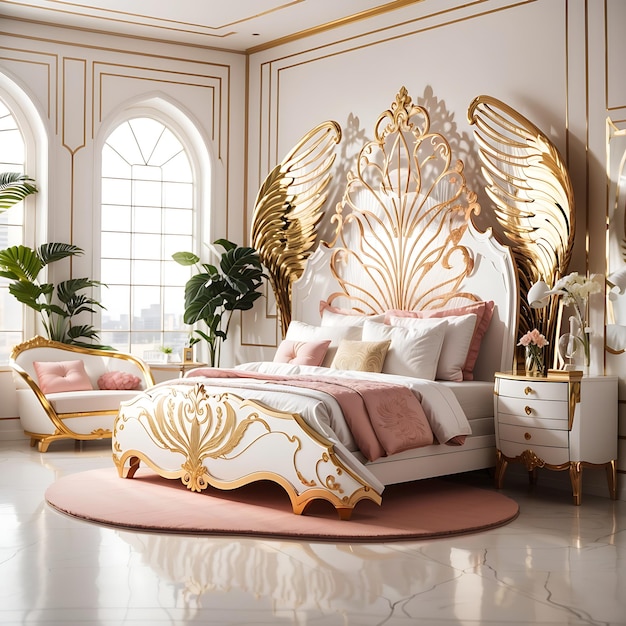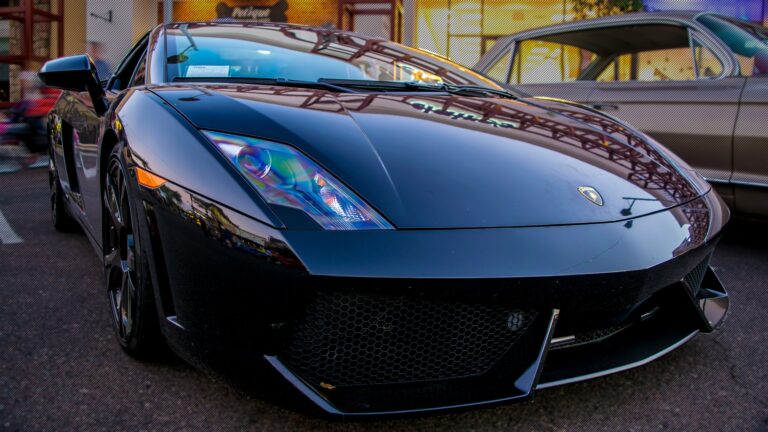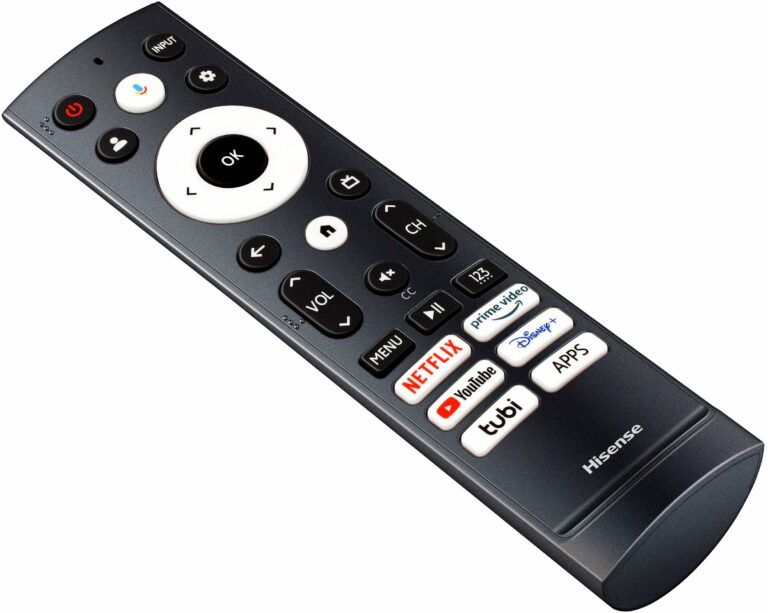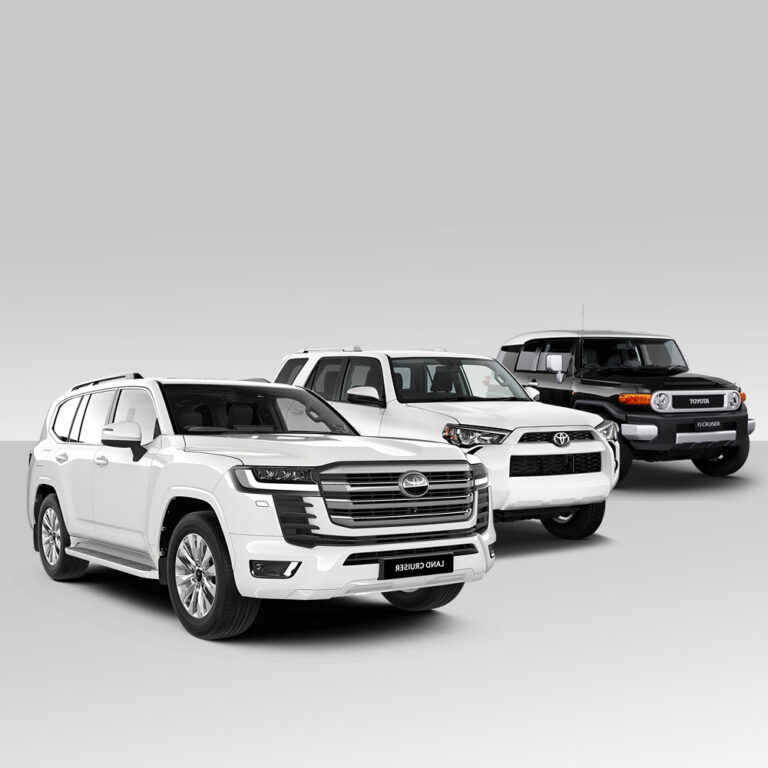Car Brands With M: A Comprehensive Exploration of Automotive Diversity
Car Brands With M: A Comprehensive Exploration of Automotive Diversity cars.truckstrend.com
The letter "M" might seem like a simple consonant, yet in the automotive world, it represents an incredibly diverse and impactful collection of car brands. From the pinnacle of luxury and blistering performance to reliable family haulers and rugged utility vehicles, brands starting with "M" have profoundly shaped the global automotive landscape. This article delves into the rich tapestry of "Car Brands With M," exploring their unique histories, contributions, market positions, and what they offer to drivers worldwide.
Understanding these brands is not just about memorizing names; it’s about appreciating the innovation, design philosophies, and cultural significance they embody. Whether you’re a car enthusiast, a prospective buyer, or simply curious about the automotive industry, exploring the "M" brands offers a fascinating journey through engineering excellence and market evolution.
Car Brands With M: A Comprehensive Exploration of Automotive Diversity
The Major Global Players: Innovation and Mainstream Appeal
Some "M" brands stand as pillars of the global automotive industry, known for their widespread presence, technological innovation, and diverse model ranges.
Mercedes-Benz: The Quintessence of Luxury and Engineering
Originating from Germany, Mercedes-Benz is arguably the most recognized "M" brand, synonymous with luxury, prestige, and pioneering automotive engineering. Tracing its roots back to the invention of the automobile itself in 1886 by Karl Benz, Mercedes-Benz has consistently been at the forefront of automotive development, introducing groundbreaking safety features, engine technologies, and opulent interiors.
Key Characteristics:
- Unparalleled Luxury: From the elegant C-Class to the opulent S-Class, Mercedes-Benz vehicles offer exquisite craftsmanship, premium materials, and cutting-edge infotainment systems.
- Engineering Excellence: Known for robust engines, refined ride quality, and advanced driver-assistance systems (ADAS).
- Performance Heritage: The AMG division transforms standard Mercedes models into high-performance beasts, blending luxury with exhilarating speed.
- Pioneering Electrification: The EQ sub-brand signifies Mercedes-Benz’s strong commitment to electric vehicles, offering a growing range of EVs that maintain the brand’s luxury standards.

Market Position: A premium luxury brand competing with BMW, Audi, and Lexus, catering to discerning buyers who value comfort, status, and advanced technology.
Mazda: The Spirit of Driving and Design
Hailing from Japan, Mazda has carved out a unique niche by focusing on the joy of driving and distinctive design, encapsulated by their "Zoom-Zoom" philosophy and more recently, "Kodo: Soul of Motion" design language. While not a luxury brand in the traditional sense, Mazda positions itself as a premium mainstream automaker, offering sophisticated design and engaging driving dynamics.
Key Characteristics:
- Driving Dynamics: Mazda cars are often praised for their responsive steering, balanced chassis, and engaging feel, even in everyday models like the Mazda3 and CX-5. The MX-5 Miata roadster is a global icon for pure driving pleasure.
- Skyactiv Technology: Mazda’s innovative approach to powertrain and chassis design, optimizing efficiency and performance across its internal combustion engine lineup.
- Premium Design: The Kodo design language gives Mazda vehicles a sleek, elegant, and upscale appearance that often punches above its weight class.
- Commitment to the Driver: A focus on ergonomic interiors and intuitive controls enhances the driving experience.
Market Position: A strong competitor in the mainstream segment, aiming for a more premium feel than rivals like Honda and Toyota, appealing to buyers who prioritize driving enjoyment and sophisticated aesthetics.
Mitsubishi: Durability, Utility, and Resurgence
Another Japanese automotive giant, Mitsubishi Motors has a storied history, particularly in rallying (with the Lancer Evolution) and pioneering SUVs. Part of the larger Mitsubishi Group, the brand has navigated various challenges and is currently focused on a streamlined global strategy, emphasizing SUVs and electrification.
Key Characteristics:
- SUV Expertise: Models like the Outlander and Eclipse Cross are central to its current lineup, known for practicality and capable all-wheel-drive systems.
- Rally Heritage: While its performance car days are largely behind it, Mitsubishi’s reputation for ruggedness and all-terrain capability stems from its rally successes.
- Value and Durability: Mitsubishi vehicles often offer a strong value proposition, backed by competitive warranties and a reputation for reliability.
- Electrification Efforts: The Outlander PHEV (Plug-in Hybrid Electric Vehicle) has been a significant player in the hybrid market, showcasing early adoption of electrified powertrains.
Market Position: Competes in the mainstream SUV and crossover segments, offering practical, durable vehicles with a focus on value and available all-wheel drive, often appealing to budget-conscious families.
Luxury and Performance Icons: Exclusivity and Exhilaration
Beyond the mainstream, several "M" brands cater to the upper echelons of the market, offering unparalleled luxury, bespoke craftsmanship, or blistering performance.
Maserati: Italian Grandeur and Passion
From Modena, Italy, Maserati embodies a blend of luxury, performance, and distinctive Italian flair. Known for its evocative engine notes and elegant designs, Maserati has a rich racing heritage and a focus on crafting vehicles that are as much works of art as they are modes of transport.
Key Characteristics:
- Distinctive Design: Maserati cars feature flowing lines, prominent grilles, and an unmistakable elegance that sets them apart.
- Exhilarating Performance: While luxurious, models like the Ghibli, Levante, and the new MC20 supercar deliver thrilling performance and a signature exhaust note.
- Handcrafted Luxury: Interiors are adorned with premium leather, wood, and carbon fiber, meticulously crafted to provide a sophisticated cabin experience.
- Exclusive Appeal: Maserati vehicles are produced in smaller numbers, contributing to their exclusivity and desirability.
Market Position: A luxury performance brand positioned below ultra-luxury marques like Rolls-Royce but above premium brands like Mercedes-Benz, appealing to buyers seeking an emotional connection with their vehicle and a blend of performance and Italian style.
McLaren: Formula 1 DNA on the Road
Based in Woking, England, McLaren Automotive is a relatively young road car manufacturer, but it leverages decades of success in Formula 1 racing. McLaren produces some of the world’s most advanced and fastest supercars and hypercars, characterized by their lightweight carbon fiber construction, aerodynamic efficiency, and extreme performance.
Key Characteristics:
- F1 Pedigree: Every McLaren road car incorporates technology and philosophies directly from its championship-winning Formula 1 team.
- Carbon Fiber Construction: Pioneers in using carbon fiber monocoques for road cars, resulting in incredible rigidity and low weight.
- Uncompromising Performance: Designed for ultimate speed and track capability, with powerful twin-turbo V8 engines and sophisticated suspension systems.
- Driver Focus: Interiors are minimalistic, prioritizing the driver and the driving experience over extraneous luxury.
Market Position: An ultra-high-performance supercar manufacturer, directly competing with Ferrari, Lamborghini, and Porsche’s top-tier models, catering to enthusiasts seeking the ultimate in speed and track capability.
Morgan Motor Company: Timeless British Craftsmanship
Also from the UK, Morgan stands in stark contrast to McLaren. It’s a boutique manufacturer known for its handcrafted, retro-styled sports cars that blend traditional techniques with modern engineering. Morgan cars possess a unique charm, often featuring wooden frames and classic designs that hark back to the early days of motoring.
Key Characteristics:
- Handcrafted Appeal: Each Morgan car is largely built by hand, offering a level of bespoke craftsmanship rarely seen in modern automotive production.
- Retro Aesthetics: Instantly recognizable by their long bonnets, sweeping fenders, and classic proportions, they evoke a sense of nostalgia.
- Engaging Driving: While not hypercars, Morgans offer a raw, engaging, and unadulterated driving experience.
- Exclusivity and Heritage: A small production volume and a rich history spanning over a century contribute to their unique appeal.
Market Position: A niche luxury sports car manufacturer, appealing to collectors and enthusiasts who value heritage, bespoke craftsmanship, and a unique, classic driving experience.
Regional Powerhouses and Re-emerging Brands
The "M" family also includes significant players that dominate specific regional markets or are experiencing a global resurgence.
Mahindra: Indian Utility and Global Ambition
Based in India, Mahindra & Mahindra is a sprawling conglomerate with a significant presence in the automotive sector. Known primarily for its rugged SUVs, utility vehicles, and agricultural equipment, Mahindra is a dominant force in the Indian market and has growing international aspirations, particularly in emerging markets and electric vehicles.
Key Characteristics:
- Robust and Practical: Mahindra vehicles are built to withstand challenging conditions, offering durability and practicality.
- Diverse Portfolio: From compact SUVs to commercial trucks and electric three-wheelers, Mahindra’s product range is vast.
- Growing EV Focus: Mahindra has invested heavily in electric mobility, aiming to be a leader in the EV space in India and beyond.
Market Position: A leading utility vehicle and SUV manufacturer in India, expanding its presence in global emerging markets, offering value-for-money, robust vehicles.
MG (Morris Garages): British Heritage, Chinese Future
MG, originally a historic British sports car manufacturer, has been revitalized under Chinese ownership (SAIC Motor). While retaining its British heritage in branding, modern MG vehicles are designed to offer value-for-money, focusing on SUVs and increasingly, electric vehicles, particularly in the UK, Europe, and Australia.
Key Characteristics:
- Affordable Value: MG cars often offer a generous list of features and competitive pricing, making them attractive to budget-conscious buyers.
- SUV and EV Focus: The current lineup heavily features practical SUVs and a growing range of well-received electric models.
- Modern Design: Contemporary designs appeal to a broader market, moving beyond its historical sports car roots.
Market Position: A re-emerging brand offering affordable, feature-packed SUVs and EVs, competing in the mainstream and entry-level segments.
Maruti Suzuki: India’s Automotive Backbone
While primarily known as Suzuki outside India, the joint venture Maruti Suzuki is the largest car manufacturer in India, dominating the affordable and compact car segments. It’s an "M" brand in the context of its full name and massive market influence in one of the world’s largest car markets.
Key Characteristics:
- Affordability and Accessibility: Known for producing highly fuel-efficient and cost-effective vehicles, making car ownership accessible to millions.
- Vast Network: Unmatched sales and service network across India.
- High Resale Value: Strong demand and reliability ensure good resale value.
Market Position: The undisputed leader in India’s mass-market automotive segment, providing reliable and affordable transportation solutions.
Common Threads and Future Outlook for "M" Brands
Despite their vast differences, the "M" brands share common challenges and opportunities in the evolving automotive landscape.
Innovation and Adaptation:
From Mercedes-Benz’s autonomous driving research to Mazda’s continued refinement of the internal combustion engine, and McLaren’s pursuit of lightweighting, innovation remains a core drive. All these brands are navigating the transition to electric vehicles, autonomous technologies, and connected car services, each approaching it from their unique market positions.
Design Philosophy:
Whether it’s the understated elegance of Mercedes, the soulful lines of Mazda, the dramatic flair of Maserati, or the purposeful aerodynamics of McLaren, design is a critical differentiator for these brands. It’s not just about aesthetics but also about reflecting brand values and engineering prowess.
Market Positioning and Challenges:
The "M" brands span the entire spectrum of the automotive market, from ultra-luxury to mass-market affordability. They face challenges like fierce competition, evolving consumer preferences, stringent emissions regulations, and the immense cost of developing new technologies. Their ability to adapt to these shifts will determine their long-term success.
Practical Advice and Actionable Insights
For those considering a vehicle from an "M" brand, here’s some practical advice:
- Define Your Needs and Budget:
- Luxury/Prestige: Mercedes-Benz, Maserati (for traditional luxury), McLaren (for ultimate performance luxury).
- Driving Enjoyment/Design: Mazda.
- Practicality/Value: Mitsubishi, MG, Mahindra, Maruti Suzuki.
- Unique/Collector: Morgan.
- Consider Ownership Costs: Luxury and performance brands (Mercedes-Benz, Maserati, McLaren) will naturally have higher purchase prices, insurance, and maintenance costs. Mainstream brands like Mazda and Mitsubishi generally offer more affordable ownership.
- Test Drive Extensively: Each brand, and indeed each model, has a distinct personality. A test drive is crucial to understanding the driving dynamics, comfort, and features.
- Research Resale Value: Brands with strong reputations for reliability and desirability (e.g., Mercedes-Benz, Mazda, Maruti Suzuki in India) tend to hold their value better. Niche brands like Morgan or high-performance models like McLaren cater to a specific market and may have different depreciation curves.
- Service Network and Parts Availability: Ensure there’s a reliable service network in your area, especially for less common or luxury brands.
Price Table: A Snapshot of "Car Brands With M"
Please note that "complete information" for a price table is impossible given the vast range of models, trims, options, and regional variations. The prices below represent a typical starting range for entry-level models within each brand’s general market segment in the US market (unless specified otherwise) and should be used as a general guide.
| Brand Name | Origin Country | Primary Market Segment | Key Characteristic | Typical Starting Price Range (USD) * |
|---|---|---|---|---|
| Mahindra | India | Utility, Commercial, SUV | Robust, Value-oriented | $15,000 – $40,000+ |
| Maserati | Italy | Luxury, Performance | Italian Style, Sound, Exclusivity | $80,000 – $200,000+ |
| Mazda | Japan | Mainstream, Premium | Driving Dynamics, Design | $25,000 – $45,000+ |
| McLaren | UK | Supercar, Hypercar | Extreme Performance, F1 Tech | $200,000 – $1,000,000+ |
| Mercedes-Benz | Germany | Luxury, Performance | Engineering, Prestige, Innovation | $40,000 – $200,000+ |
| MG | UK (Chinese-owned) | Value, EV, SUV | Affordable, Modern Features | $20,000 – $40,000+ |
| Mitsubishi | Japan | SUV, Crossover | Durability, AWD Heritage | $25,000 – $45,000+ |
| Morgan | UK | Handcrafted Sports Car | Retro Charm, Bespoke | $70,000 – $150,000+ |
| Maruti Suzuki | India | Entry-level, Compact | Affordability, Fuel Efficiency | $8,000 – $20,000+ (Indian Market) |
* Prices are highly variable based on specific model, trim level, options, regional market, and current promotions. Excludes ultra-limited editions or classic models.
Frequently Asked Questions (FAQ) about Car Brands With M
Q1: Which "M" brand is considered the most luxurious?
A1: Mercedes-Benz is widely considered the most luxurious mainstream "M" brand, offering a full range of high-end sedans, SUVs, and performance vehicles. Maserati offers a more exclusive, passion-driven luxury, while McLaren is an ultra-luxury performance brand.
Q2: Are there any electric car brands starting with "M"?
A2: Yes! Mercedes-Benz has its dedicated "EQ" sub-brand for electric vehicles (e.g., EQS, EQE). MG offers several EV models (e.g., MG ZS EV, MG4 EV). Mahindra also has a growing range of electric vehicles, particularly for the Indian market.
Q3: Which "M" brand is known for reliability?
A3: Mazda and Mitsubishi both have strong reputations for reliability and durability, particularly in their mainstream offerings. In India, Maruti Suzuki is synonymous with reliable and low-maintenance vehicles.
Q4: Is "M" for BMW an actual car brand?
A4: No, "M" in BMW M is not a standalone car brand. It refers to "BMW M GmbH," which is BMW’s high-performance subsidiary. They produce performance-oriented versions of BMW cars, but the brand remains BMW.
Q5: What’s the oldest car brand starting with "M"?
A5: Mercedes-Benz, through its lineage to Daimler-Motoren-Gesellschaft (DMG) and Benz & Cie., traces its origins back to the invention of the automobile in 1886 by Karl Benz, making it one of the oldest automotive manufacturers in the world.
Q6: Which "M" brand is best for families?
A6: For families, Mazda (with its CX-5, CX-90 SUVs), Mitsubishi (Outlander, Eclipse Cross), and Mercedes-Benz (GLC, GLE SUVs) offer excellent choices balancing practicality, safety, and comfort.
Conclusion
The "Car Brands With M" offer a fascinating microcosm of the entire automotive industry. From the century-old prestige of Mercedes-Benz to the driver-centric passion of Mazda, the raw power of McLaren, and the rugged utility of Mahindra, this collection of brands showcases the vast spectrum of engineering, design, and market strategies that define the global car market. Each "M" brand, in its unique way, contributes to the ongoing evolution of personal mobility, pushing boundaries in technology, sustainability, and the very concept of driving. Understanding these brands provides a deeper appreciation for the innovation and diversity that continues to drive the world of automobiles forward.





